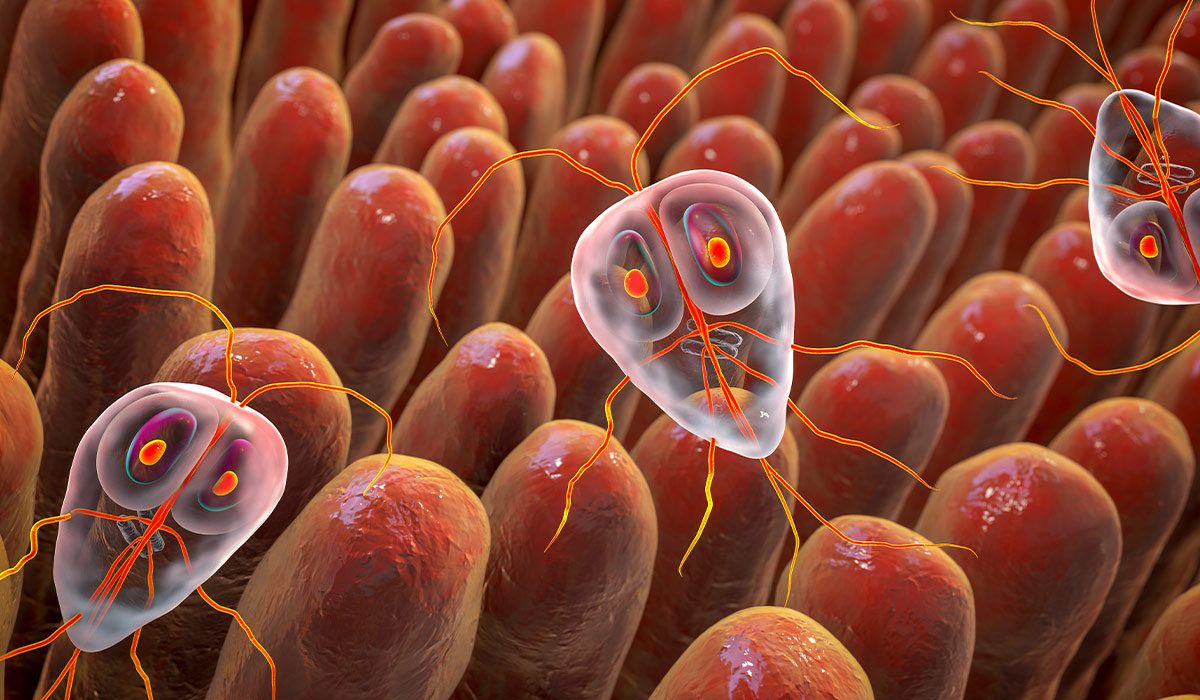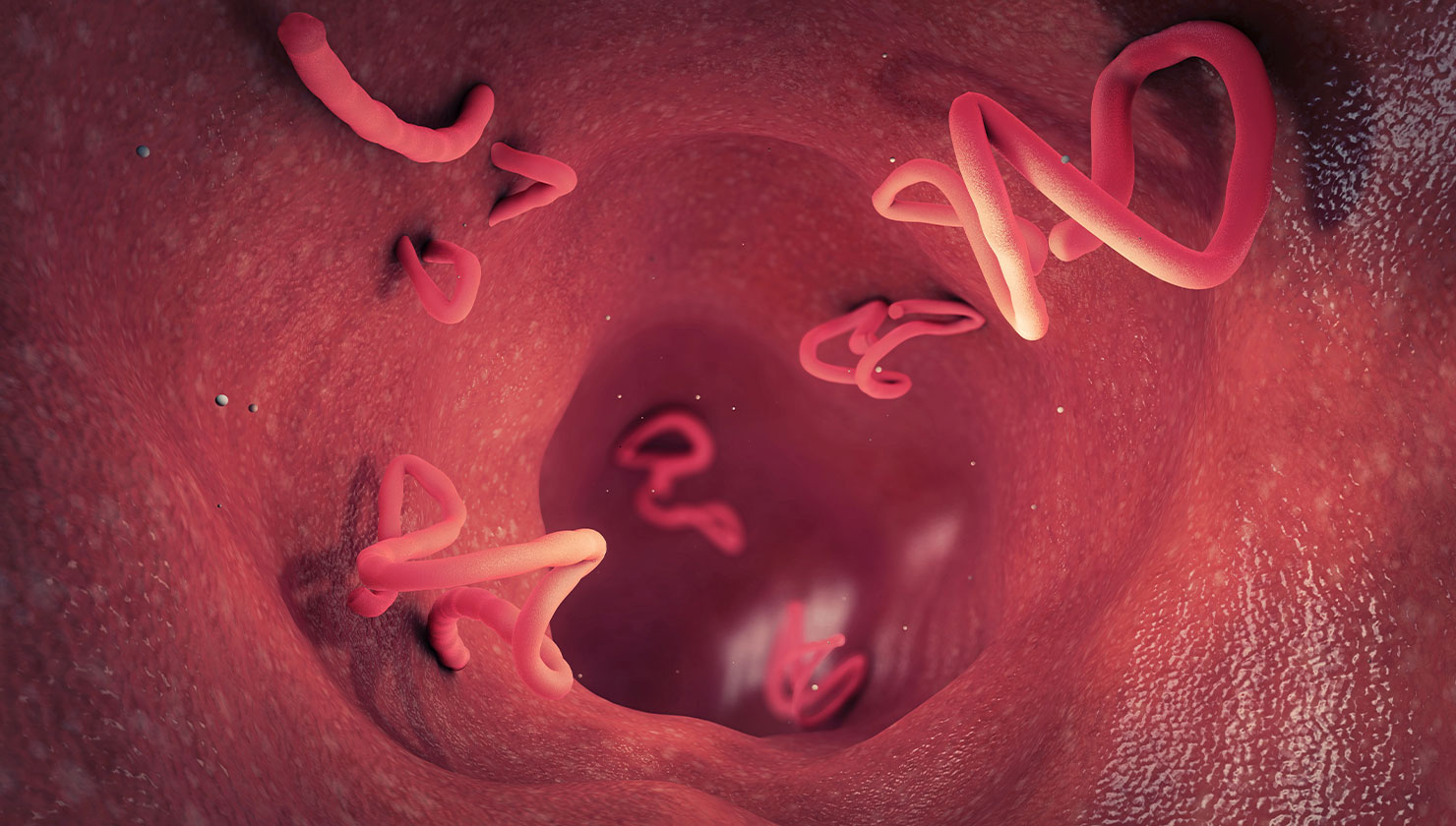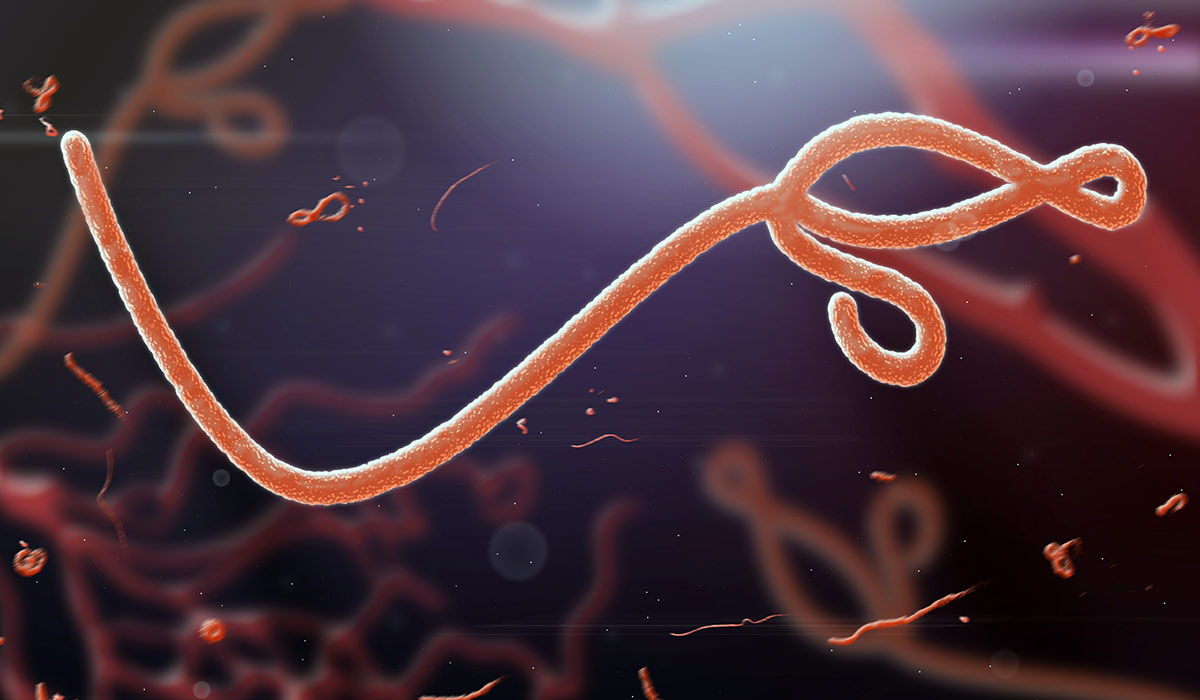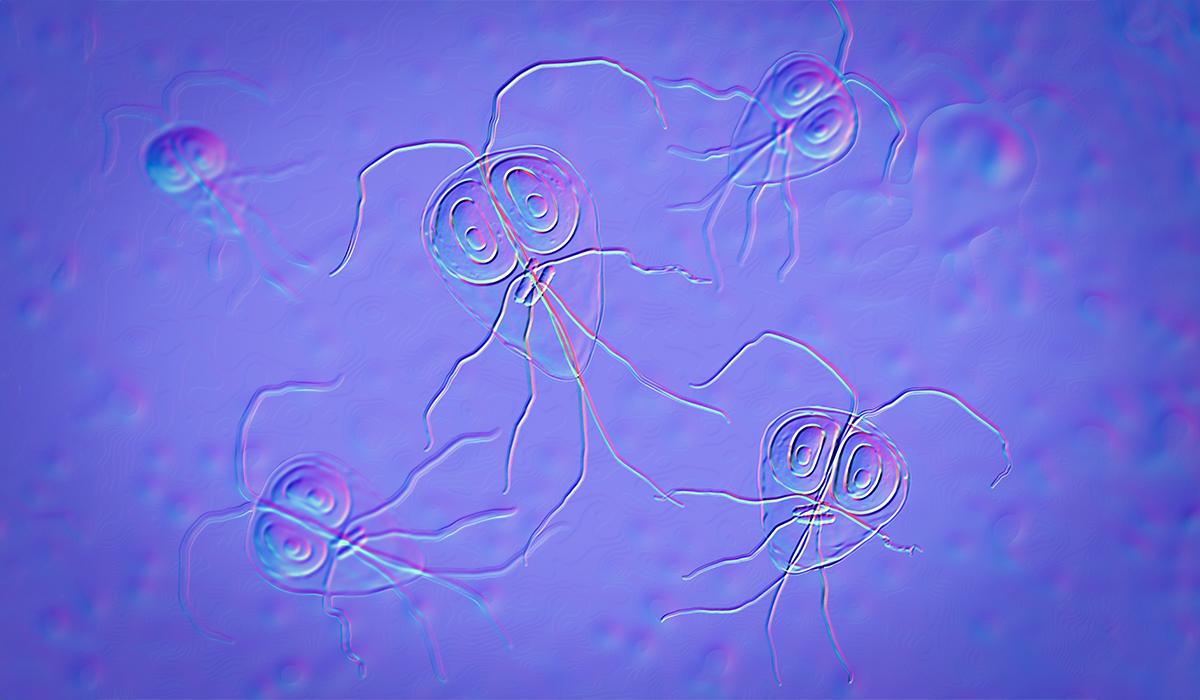Parasites, a mere say of which can send a shudder down the spine. But truly, what do these sentiments comprise? Parasites are those creatures that tend to take along a host, another living being, out of their claimed species to guarantee they survive. That's frequently done and takes a toll on the host.
Beneficial interaction is, on the other hand, mutualism, while parasitism may be a form of collaboration in which one of the two sides benefits from the relationship. They can be found inside a host's body or the host's exterior. Sometimes, this incorporates the host's dress or where they have stayed recently. They utilize the host's assets and, in some cases, can cause serious harm. There are numerous different sorts of parasites.
For illustration, a few parasites are so enormous that others think they are of the same substance. A tapeworm is one of these. And some- such as the protozoa that cause malaria- so minor merely can't see them! Still, they are no less unsafe, even though they have exceptionally revolting looks. That doesn't mean that they are less of a portion of nature.

On the other hand, whereas the common recognition is that parasite diseases are exceptionally difficult to capture, there's evidence to the contrary. Each year, millions of individuals are influenced by the deficiency of water, well-being care, and sanitation in numerous communities around the globe.
Malaria, schistosomiasis, and hookworm diseases are parasite-borne illnesses determined among these communities found in tropical and subtropical zones of the world. The matter has declined significantly due to the extension of tourism, which causes parasites to be transported to each corner of the globe. They are mainly found in different places, but they may be scattered elsewhere. Indeed, within the wealthiest nations, parasites are still an issue.
For instance, these illnesses, such as gastroenteritis and evenly exchanged bacterial contaminations through the management of inaccurately treated, out-of-commission nourishment, are much higher than thought.
Parasites may be classified according to their forms and levels. Yet, most contagious diseases can be divided into three main categories. The first one is protozoa, which consists of relatively few one-celled organisms.
Because of their ability to duplicate themselves inside the host and the same reproductive process again, they are the carriers of such diseases as malaria and amoebiasis. These infections often progress very quickly, potentially leading to severe conditions if left untreated.
The second branch of animals is called helminths–more commonly, worms are included in this group. These multicellular organisms, such as roundworms, tapeworms, and flukes, are known for being danger seekers. They are most often found in the intestines; however, some kinds, such as the liver fluke, use the intensity of their propulsion to pierce the body in other areas.
As they are enormous and intractable in nature, they push people to suffer from chronic diseases for their whole life period. Hence, such people lose their quality of life.
When it comes to symptoms, parasites are really good at convincing people. Many individuals experience the symptoms of diseases that develop extensively and often mimic other maladies, which, in turn, leads patients to be unaware of the real nature of their condition. Most of the common symptoms include disturbances of the gastrointestinal tract, like diarrhea, bloating, and nausea. This symptomatology is typical of intestinal infections such as Giardia lamblia.
Symptoms that may accompany skin lesions or ulcers include rashes and strong itching. These signs mimic those we notice during parasitic infections, such as scabies. Protozoans, such as malaria blood flukes, may manifest themselves with acute forms of systemic disorders, especially if they are characterized by high fever, chill, and fatigue.
Parasites, for example, can cause trichinellosis, which may cause vagueness and palpitations among people. Severe cases of this disorder may lead to central nervous system injuries, which may come with seizures or disorientation, especially when parasites penetrate the ventricle space in the brain, as in neurocysticercosis.


Parasites can cause complications due to infections. Moreover, if parasitic infections are not treated properly, they can cause great damage to the body.
There is a substantial chance of long-term injury in the case of long-term diseases. Take the disease initiated by hookworms as a case study. Thus, children who suffer from iron deficiency and are thus not as tall as they should be are from families that are unable to rectify the health and poverty cycle.
Certain insects can cause irreversible damage to organs. For instance, Schistosoma infections![]()
have the potential to create liver scarring and cause damage to the kidneys.
Equally, seizures can be produced by the eggs of the pig tapeworm that can get to the brain. At their worst, these diseases can be life-threatening issues that can cause death. Even less severe cases can significantly impact one's life quality, although they are not as serious.
Continual intestinal troubles from the worms or itching as a result of scabies may not seem serious, but they can leave you feeling very tired and worn out.
There are moments when determining whether a parasite actually infects a person is really hard. Often, the diagnosis relies on a few methods combined to make a correct diagnosis. The reason is that similar symptoms of busting out might also convey other conditions.
A major bulk of the situations, usually parasitic infections, can be discovered by stool tests. There is still a lot to think about regarding the method, but it is really effective. The laboratory technician obtains a sample of the stool and then looks at the microscope to see the presence of ulcers, larvae, or cysts of a parasite. While this treatment successfully eliminates parasites from the digestive system, it has its challenges; there are moments when it becomes indistinct to identify whether or not there is a presence of an infection.
When diseases such as malaria are concerned, an investigation is really beneficial. A small sample of blood from the individual must be tested using a microscope in the laboratory. The blood is mostly colored with specific chemicals, which enables the diagnosis of the presence of parasites.
When confronting systematic ailments like toxoplasmosis, tests that detect antibodies and antigens are more telling. By testing different samples of blood, it is possible to verify if there are any corresponding symptoms of the disease that are not so obvious, even if the parasite cannot be detected in the blood.
Due to molecular biology![]()
, it is now possible to locate many parasites that were very hard to locate earlier. PCR, often referred to as polymerase chain reaction, is a procedure that allows the detection of infinitesimal amounts of DNA from parasites. However, these instruments are as sensitive as they are expensive and scarce for people in the developing world.
Imaging techniques are, therefore, highly instrumental in cases where the parasites gain entry into the body cells. Neurocysticercosis and schistosomiasis can cause harm to the patient's brain or liver via the cysts that develop in the patient's brain or the patient's liver and then the liver. In such instances, MRI scans can be used to show these cysts. There are no solid indicators of parasites, although successfully using these precautions will tell you if you have them.
The struggle against parasitic illnesses can be viewed as a complex crossword puzzle that needs to be solved first. The kind of parasite and the severity of the patient's condition are the key factors in the treatment decision.
Initially, a prescription with specific antiparasitic medications will be needed. Sometimes, medicines with artemisinin in them are used to treat parasitic diseases like malaria. Previously, m***********e![]()
has proven to be a successful treatment for giardiasis or amoebas. This medicine is synonymous with m*********e or a*********e, which is extremely effective in the treatment of worms. The series is completed by bringing worms to the edge of starvation, where the process of death is finally occurring. One of the most popular drugs for treating flukes and tapeworms is praziquantel, which is often used.
On the other hand, when it comes to ectoparasites, lice, or scabies mites, typical topical treatments, including permethrin lotions, have demonstrated very high effectiveness. In contrast, oral medications such as i********n, which are sometimes also used in cases of worms, might be necessary for severe cases of infection.
If parasites cause abnormal growth or organ damage, a surgical procedure might be necessary. Removing hydatid cysts developed by Echinococcus worms is a highly delicate procedure, as the fluidizer can spill out and cause damage if the cysts rupture. Surgery could be a must for treating some muscle cysts, a consequence of trichinella disease.
On the one hand, the parasites bring about agony, but more importantly, they contribute to vital energy loss, and the body is in a state of profound stress. The rehydration of the patient suffering from heavy diarrhea is one of the therapeutic approaches that ought to be adhered to. On the contrary, administration of iron tablets is a must for treating anemia. On the contrary, one may counter the thought that treating secondary infections is on par with the initial combat against the pathogenic agents.
The effort to eradicate parasites is only at the beginning. Scientists are producing new treatments and exploring other methods, like vaccines against malaria. While research is quite slow, people are optimistic about the likelihood of a drop in the number of cases of parasite-related diseases globally.


As for parasitic infections, medicine is the cure for the ones that are occasionally even the most severe. Instead of that, the common types of parasitic diseases, such as giardiasis or pinworm, should be treated almost as soon as possible. The contrast is that the most lethal infections (for example, cerebral malaria and liver fluke infection) need emergency care because otherwise, irreversible damage will ensue. Besides, the patient's location can also serve as a factor in determining the prognosis.
Diagnosis and, as a consequence, treatment can improve health care in countries with high wealth. On the other hand, the lack of access to healthcare in less affluent countries leads to the development of untreated infections, which eventually cause incurable disabilities or death. Public interventions and the early diagnosis of diseases are possibly the best public responses.
Keeping cleanliness and sanitation high is the first and most important measure to prevent parasite diseases. Virulent water worms have a high rate of sequestration in still waters, which can be attributed to the fact that adequate water is being used together with functional sewage systems. It is also imperative to teach people how to do complete pliable food preparation, the handwashing regime, and, as much as possible, not to go to dangerous swimming areas. Methods of insect control that are successful in places where malaria is endemic include mosquito nets and repellents.
Nowadays, vaccines are being developed, which will be a step forward when prevention is easier. At present, education, infrastructure, and supervision, with their appropriate mix, are the most preferred ways of resistance against the incursion of the slow ones. However, it is this way of talking about this point.
Table of Contents


Malaria is a dangerous tropical infection that spreads through mosquitoes. Infected people usually experience symptoms like the flu, such as… read more »


Ovarian cysts are among the most common changes in the reproductive organs of women regardless of their age. Are they… read more »


Giardiasis is a disease that causes symptoms of diarrhea. Some people are at greater risk of a severe course and… read more »


In the case of the Toxoplasma gondii parasite, the sickness isn't as it were one of the foremost common but… read more »


A tapeworm is a parasite that uses the human body as a food source. Its presence causes certain symptoms –… read more »


The Ebola virus continues to pose a threat to those living in Africa. Learn about the risks associated with Ebola… read more »


Pathogens are disease-causing germs. They can include bacteria, viruses, fungi, protozoa, and worms. How are they spreading? What diseases do… read more »


Trichinosis or trichinellosis is caused by a parasite roundworm from the sort of Trichinella. Undercooked pork and wild creatures eaten… read more »


Giardia lamblia is a parasite affecting humans. It is also known as giardia intestinalis and giardia duodenalis. It leads to… read more »